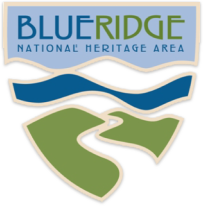The Blue Ridge National Heritage Area Partnership and North Carolina Department of Cultural Resources Secretary Linda A. Carlisle have announced findings from an analysis of music venues that showed an economic impact of $20.7 million from 26 traditional music events in Western North Carolina.
The results of the study, “Analysis of Traditional Music Venues in Western North Carolina,” were announced at the annual meeting of the Blue Ridge National Heritage Area Partnership, Gather ‘Round the Blue Ridge, held in Arden. Secretary Carlisle and traditional musician David Holt were featured speakers at the event, which drew more than 160 participants from throughout Western North Carolina.
“Clearly traditional music is important to the local economies and the region,” Secretary Carlisle said. “Cultural Resources and the Arts Council are delighted to be collaborating with the Blue Ridge National Heritage Area Partnership on this important Blue Ridge Music Project.”
The study was conducted by East Carolina University in partnership with the N.C. Arts Council, an agency of the Department of Cultural Resources, and the Blue Ridge National Heritage Area Partnership. The study looked at 26 music venues in the Blue Ridge Music Trails.
“This study shows that traditional music venues and events contribute to the economic well-being of our communities and provide a very satisfying experience for tourists,” said Angie Chandler, Executive Director of the Blue Ridge National Heritage Area Partnership.
The BRNHA Partnership and the Arts Council undertook the study in 2011 to assess the economic impact of traditional music in the western part of the state by examining data collected from audience surveys at events. In addition, folklorists collected anecdotal information from visitors.
Some of the findings of the study include:
- The 26 surveyed events produced $18.6 million of direct economic impacts, $972,611 of indirect impacts, and $1.2 million of induced impacts, yielding a total economic impact of $20.7 million.
- Nearly 40 percent of respondents indicated that the primary purpose of their visit was specifically to attend the music event where they were surveyed.
- Nearly 70 percent of survey respondents indicated that they were full time residents of North Carolina and 65 percent of these were from Western North Carolina.
- Visitors from outside the venue location spent an average of 2.9 nights in the region while attending the events where they were surveyed.
- A typical community event can be expected to return more than $4,000 for every 100 visitors attending.
- Overall, 99 percent of the sample stated that they intended to return to the same event the following year. This response indicates a high level of satisfaction with the events specifically and likely with the venues/communities in which the events were held.
- Since all of the spending that was reported on the surveys was associated with the events, not holding these events would have resulted in a loss of 65-percent of the impacts or $13 million to the economies of the various communities that hosted the events.
- If these events were not held, 65 percent of survey respondents indicated that they would have traveled to another community to attend a different event.
- The majority (85%) of the sample indicated that they participated in the arts (and music) and were also influenced by North Carolina’s musical traditions.
The analysis was conducted in order to understand the travel patterns of participants at music venues as the N.C. Arts Council works on updating the Blue Ridge Music Trails Guidebook with the BRNHA Partnership and UNC Press. The new edition, which will include a CD, will be released in the spring of 2013.
“The partnerships between the Arts Council, the BRNHA, local arts councils and tourism authorities in Western North Carolina will make a big impact on the success of this project,” Wayne Martin, N.C. Arts Council Executive Director, said. “Working together our organizations can reenergize the Blue Ridge Music Trails project so that it celebrates our traditional musicians, supports the venues with increased tourism, and overall creates community pride.”
Read McDowell News story on impact on McDowell County.
Contact
- Angie Chandler
- 828-298-5330, ext. 307


